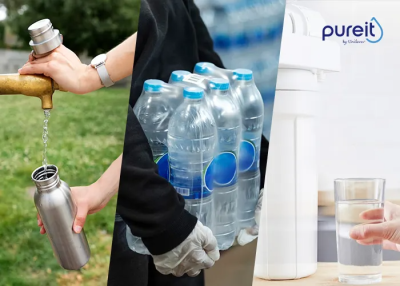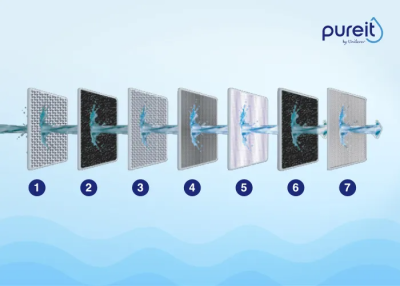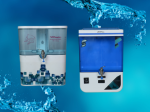
Understanding the Differences between Tap Water, Bottled Water,
Water holds immense importance in our daily lives, serving as an essential element that sustains us. Exploring the distinctions among the various types of water that we encounter is crucial for informed decision-making. From tap water and bottled water, to filtered and mineral water, there are many types of water available for consumption. Let’s delve into their unique qualities and determine which is the most suitable option.
The Value of Safe and Clean Drinking Water
Clean and safe drinking water is essential for human health and well-being. It is critical for the body's functioning and for everyday activities like drinking, cooking, bathing, and cleaning.
Drinking contaminated water can cause various waterborne diseases, such as diarrhea, cholera, dysentery, typhoid, and hepatitis A. These diseases can lead to severe dehydration, hospitalization, and even death, especially in children and people with weakened immune systems.
Moreover, contaminated water can also have long-term health effects, such as developmental delays, stunted growth, and neurological problems. In addition, exposure to certain chemicals and pollutants found in contaminated water can increase the risk of cancer, reproductive problems, and other chronic illnesses.
What are the Different Types of Water Available?
Tap water
This is the most commonly consumed type of water, which is supplied by municipal water supply systems. It is usually treated to remove impurities and disinfected with chlorine or other chemicals to make it safe for consumption. Tap water is readily available and affordable, but its taste and quality can vary depending on the location and the treatment process.
- Tap water comes directly from the faucet or municipal water supply.
- It may contain various contaminants such as bacteria, viruses, chlorine, fluoride, and heavy metals, depending on the source and treatment methods used.
- It is generally the cheapest option and readily available in most households but without assuring any safety towards health.
Bottled water
This type of water is packaged in bottles and sold in stores. It can come from various sources, such as springs, wells, or municipal water supplies, and may or may not be treated or purified. Bottled water is convenient for people who are on the go or do not have access to tap water, but it can be expensive and generate plastic waste.
- Bottled water is water that is packaged in bottles and sold commercially.
- It can be sourced from a variety of sources, including springs, wells, and municipal supplies.
- The FDA regulates bottled water and must meet certain quality standards for safety.
- It is more expensive than tap water and can have a significant environmental impact due to the production and disposal of plastic bottles hence carbon footprints.
RO filter system treats filtered water. This type of water removes impurities, such as chlorine, bacteria, and other contaminants. It can be obtained through various methods, such as using a pitcher filter, a faucet filter, or a whole-house filtration system. Filtered water can be a good option for people who want to improve the taste and quality of their tap water or reduce their exposure to pollutants.
Filtered Water
- Filtered water is tap water that has been filtered to remove impurities.
- It can be filtered through various methods, such as activated carbon filters, reverse osmosis, or distillation.
- The quality of filtered water can vary depending on the filter type used and the tap water's specific contaminants.
- It is generally more affordable than bottled water and more environmentally friendly than constantly buying bottled water.
Mineral Water
This type of water contains naturally occurring minerals, such as calcium, magnesium, and potassium, which can provide health benefits. It is usually sourced from underground springs or wells and is often bottled at the source. Mineral water can be expensive, but it is considered a healthier alternative to tap or bottled water due to its mineral content. However, it is important to note that the mineral content of mineral water can vary widely depending on the source and the brand. Check out Mineral water purifiers.
- Mineral water naturally contains minerals and trace elements, such as calcium, magnesium, and potassium.
- Some believe mineral water has health benefits due to its mineral content.
- It can be more expensive than other types of water due to its unique sourcing and composition.


